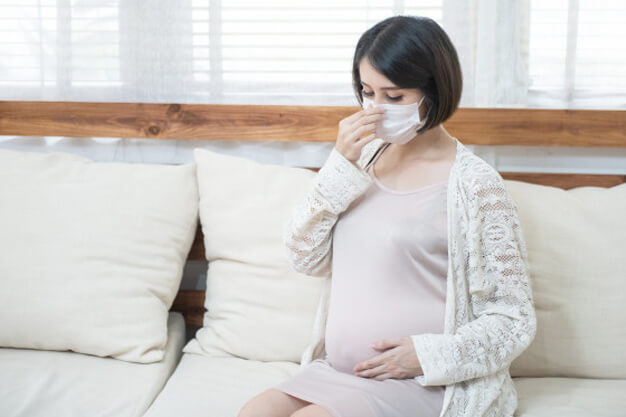Q&A on COVID-19, pregnancy, childbirth and breastfeeding
April 2020
Are pregnant women at higher risk from COVID-19?
Research is currently underway to understand the impacts of COVID 19 infection on pregnant women. Data are limited, but at present there is no evidence that they are at higher risk of severe illness than the general population.
However, due to changes in their bodies and immune systems, we know that pregnant women can be badly affected by some respiratory infections. It is therefore important that they take precautions to protect themselves against COVID-19, and report possible symptoms (including fever, cough or difficulty breathing) to their healthcare provider.
WHO will continue to review and update its information and advice as more evidence becomes available.
I’m pregnant. How can I protect myself against COVID-19?
Pregnant women should take the same precautions to avoid COVID-19 infection as other people. You can help protect yourself by:
- Washing your hands frequently with an alcohol-based hand rub or soap and water.
- Keeping space between yourselves and others and avoiding crowded spaces.
- Avoiding touching your eyes, nose and mouth.
- Practicing respiratory hygiene. This means covering your mouth and nose with your bent elbow or tissue when you cough or sneeze. Then dispose of the used tissue immediately.
If you have fever, cough or difficulty breathing, seek medical care early. Call before going to a health facility, and follow the directions of your local health authority.
Pregnant women and women who have recently delivered – including those affected by COVID-19 - should attend their routine care appointments.
Should pregnant women be tested for COVID-19?
Testing protocols and eligibility vary depending on where you live.
However, WHO recommendations are that pregnant women with symptoms of COVID-19 should be prioritized for testing. If they have COVID-19, they may need specialized care.
Can COVID-19 be passed from a woman to her unborn or newborn baby?
We still do not know if a pregnant woman with COVID-19 can pass the virus to her foetus or baby during pregnancy or delivery. To date, the virus has not been found in samples of amniotic fluid or breastmilk.
What care should be available during pregnancy and childbirth?
All pregnant women, including those with confirmed or suspected COVID-19 infections, have the right to high quality care before, during and after childbirth. This includes antenatal, newborn, postnatal, intrapartum and mental health care.
A safe and positive childbirth experience includes:
- Being treated with respect and dignity;
- Having a companion of choice present during delivery;
- Clear communication by maternity staff;
- Appropriate pain relief strategies:
- Mobility in labour where possible, and birth position of choice.
If COVID-19 is suspected or confirmed, health workers should take all appropriate precautions to reduce risks of infection to themselves and others, including hand hygiene, and appropriate use of protective clothing like gloves, gown and medical mask.
Do pregnant women with suspected or confirmed COVID-19 need to give birth by caesarean section?
No. WHO advice is that caesarean sections should only be performed when medically justified.
The mode of birth should be individualized and based on a woman’s preferences alongside obstetric indications.
Can women with COVID-19 breastfeed?
Yes. Women with COVID-19 can breastfeed if they wish to do so. They should:
- Practice respiratory hygiene during feeding, wearing a mask where available;
- Wash hands before and after touching the baby;
- Routinely clean and disinfect surfaces they have touched.
Can I touch and hold my newborn baby if I have COVID-19?
Yes. Close contact and early, exclusive breastfeeding helps a baby to thrive. You should be supported to
- Breastfeed safely, with good respiratory hygiene;
- Hold your newborn skin-to-skin, and
- Share a room with your baby
I have COVID-19 and am too unwell to breastfeed my baby directly. What can I do?
If you are too unwell to breastfeed your baby due to COVID-19 or other complications, you should be supported to safely provide your baby with breastmilk in a way possible, available, and acceptable to you. This could include:
- Expressing milk;
- Relactation;
- Donor human milk.
Also read : 6 exercises which you can easily do at home
About Dr Bedekar Hospital For Women And Children in Thane:
Dr Bedekar Hospital Thane Offers Gynaecologist in Thane.
Do Get in Touch to Book Appointment With Our Experienced Team of Doctors.
Talk to Us On 022 2542 1438 / 9820913256 Or Email Us At bedekarhospital@gmail.com
Happy to Help!
Share This:
Source: timesofindia.indiatimes.com



